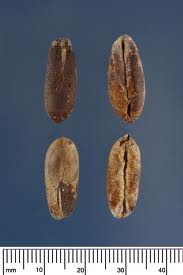Glycaemic effects of date palm (phoenix dactylifera) in wistar rats
Keywords:
Date palm fruits, Glycaemia index, Rats, Blood glucoseAbstract
Date palm fruit is commonly known fruit often called “Dabino” by Northern Nigerians. It is often eaten during fasting periods as it gradually improves low sugar levels due to its sugary or sweet nature. The present study aimed at evaluating the glycaemic responses of non diabetic albino rats administered with date palm (phoenix dactylifera). To accomplish this aim, animals were fasted for 18 hours after which they were randomly assigned into three (3) groups of five (5) animals each as follows: Group 1: Received 40g of glucose dissolved in 100ml of distilled orally, Group 2: Received 1000mg/kg b w of aqueous extract of date palm orally and Group 3: Received 1500mg/kg b w of aqueous extract of date palm orally. The results obtained indicated a non statistically significant (P>0.05) difference on blood glucose levels in the animals administered with the low and high doses of aqueous date fruit extract of 1000mg/kg b w and 1500mg/kg b w respectively when compared to the control group. However, oral administration of 1000 and 1500 mg/kg b w of date fruit extract produced a significantly decreased (p <0.05) blood glucose level when compared to the control group. In conclusion, the results from study revealed that date palm fruits may be classified as low glycaemic index food items, hence its consumption of may be of benefit in glycaemic control in non-diabetics.

Published
How to Cite
Issue
Section
Copyright (c) 2013 J. A. Tende, E. D. Eze, Y. A. Tende, A. R. Essien

This work is licensed under a Creative Commons Attribution-NonCommercial-NoDerivatives 4.0 International License.



